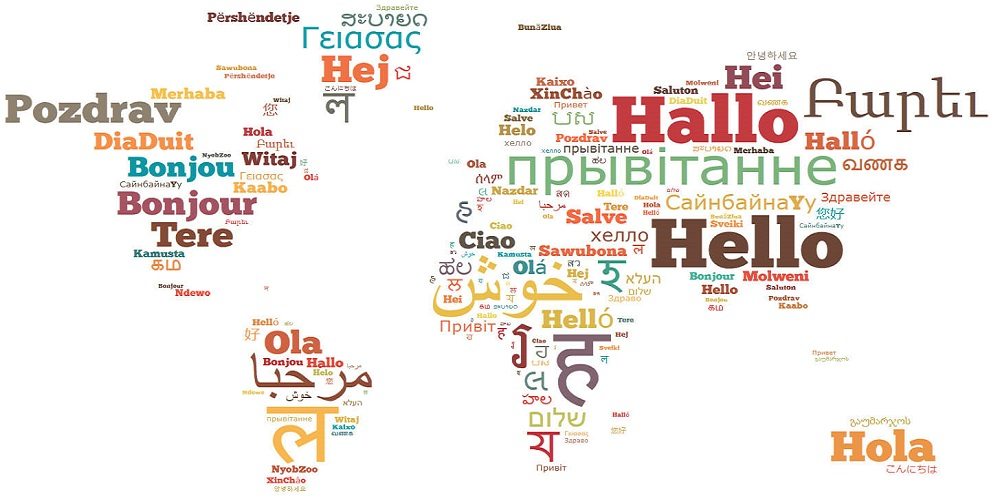
September 30 is blessed twice-fold. Officially, the UN has declared it to be recognized as International Translation Day, for the role of professional translation in connecting nations.
Unofficially, it is also International Blasphemy Day, to educate the importance of freedom of expression—particularly with opinions contrary to religious or other issues of sacred importance to people. When this day rolls onto my calendar, I like to pause and remember a time when I was lucky enough to honor both days in the mother of all stuff-ups.
‘Twas the year 1993. I was a mere high school student, freshly residing in Sydney, Australia. By this stage, I had already displayed both skill and interest in linguistics. I truly enjoyed studying foreign languages and cultures, devouring books featuring long-lost myths and legends. At school, I was studying English, French, and Japanese; I had also studied Bahasa Indonesian in my junior years and was planning to add German to my Senior High School studies.
Foreign languages were my thing. Already I had plans to take over the world.
My parents were subsequently encouraged to consider including me in the school’s exchange program. At the time, they only had a Japanese exchange program. The arrangement was a student from Japan to come and stay with my family for 12-months and, in return, I would stay with their family.
It was all very exciting! Our first ever exchange student was Maki. We exchanged a few introductory letters at first. The usual stuff: Maki was two years older than me. She dreamed of traveling the world and learning about foreign cultures. Just like me!
A week before Maki’s arrival, my mother pulled me aside and said, “We need to talk about some ‘language’ rules.” My mother was somehow convinced the first thing I intended to do was learn a bunch of swear words in Japanese, and in return teach Maki how to swear in English.
The Language Rules:
- No swearing, in any language
- No Japanese words that may sound like swearing in English (and vice versa)
- No Japanese words that would insult my mother’s Catholic beliefs (and vice versa)
- And no talking about my mother in Japanese (like my grandmother’s family hadn’t been doing the same thing with us kids in Malti for YEARS?!?)
Between us both, we were sure she had covered every possible scenario.
She was wrong.
When we met Maki at the airport, she was so excited to be in Sydney, she was positively bouncing. All of her student group were bouncing! I was bouncing! We were all bouncing with this beautiful positive energy!
On the way to our home, we drove past the Sydney Opera House and over the Sydney Harbour Bridge. I remember Maki’s eyes glistened and she made the cutest little “squee.” We started taking it in turns speaking each other’s language: Maki would speak a little English, then I would speak a little Japanese.
When we arrived at our house, Maki and I ran inside so I could show her to her room. We sat down laughing about the drive and still talking in our mixed-up languages about the things we loved:
“I love books!”
“Ongaku ga daisukidesu!” (I love music!)
“I love koala!”
“Yaku ga daisukidesu!” (I love baseball!)
…
Wait. Did Maki’s face just drop?
“Watashi no oya wa yaku ga daisukijanai. Watashi wa yaku dake de asobu.” (My parents don’t like baseball. I play baseball alone.)
And this was the point where Maki burst into tears and ran from the room.
I was left devastated. What did I say? I remembered asking my teacher how to say baseball in Japanese. Maki had said in her letters how much she liked to watch baseball in Japan. My family is soooooo not interested; they are football fans—and we’re talking the really rough Australian Rugby League.
By the time I was downstairs, Maki was crying on my mother’s shoulder and begging to return to Japan. I had ruined her first day, and the look my mother was giving me was pure “what the Hell did you do, girl?”
“All I said was, ‘I love baseball’. I don’t know what else is going on!”
And just as suddenly, Maki stopped crying. “Baseball? Yakyu?”
“Yes, baseball. Yaku!”
For a split second, Maki looked stunned. Then she broke into laughter. It was a sound filled with both relief and amusement.
Now, our Japanese-educated readers would have already picked up on my error. For those who do not read or speak Japanese:
Yakyu = baseball
Yaku = DRUGS
I told her I liked drugs.
And to make it even better, I had told her my parents don’t like drugs and so I do drugs on my own.
Oh yeah, we laugh about it now. Needless to say, Maki relaxed and did not want to return home that day. In fact, she loved her entire stay in Australia: we took her up to North Queensland, west to our nation’s capital, and all around Sydney.
On the other hand, my wonderful over-protective mother suddenly decided she was too scared to allow me to travel to Japan and have a similar “lost in translation” moment with my host-family. My subsequent travel was canceled. *sigh* I am yet to travel to Japan and tell more people about my love for drugs.
So let this be a lesson to you, on this oh-blessed day of translation and blasphemy. Anything can be lost in translation. And blasphemy isn’t only about religion. It is to show disrespect for anything considered sacred or special to another person. This could be religion, or sexuality, or race, or drug use amongst school children.
Don’t be a dic-tionary and use your words as weapons. That’s not what today is about. Instead, think about how we use words to confuse and hide behind, and let’s try to make things as simple as possible for everyone.
And remember kids: Don’t do baseball, okay?




